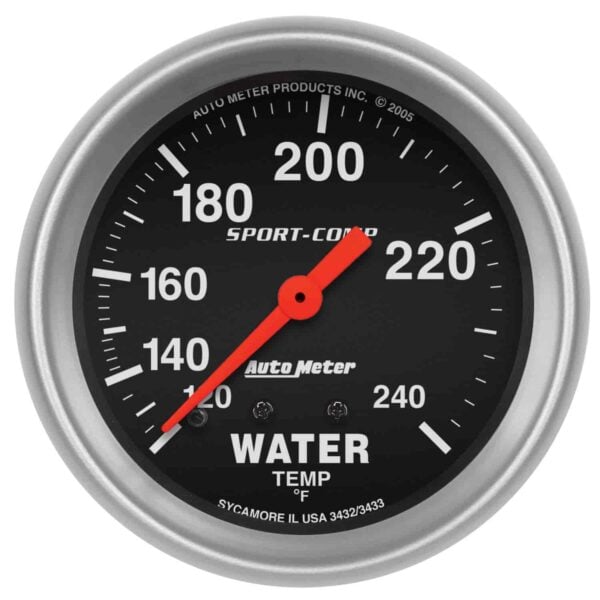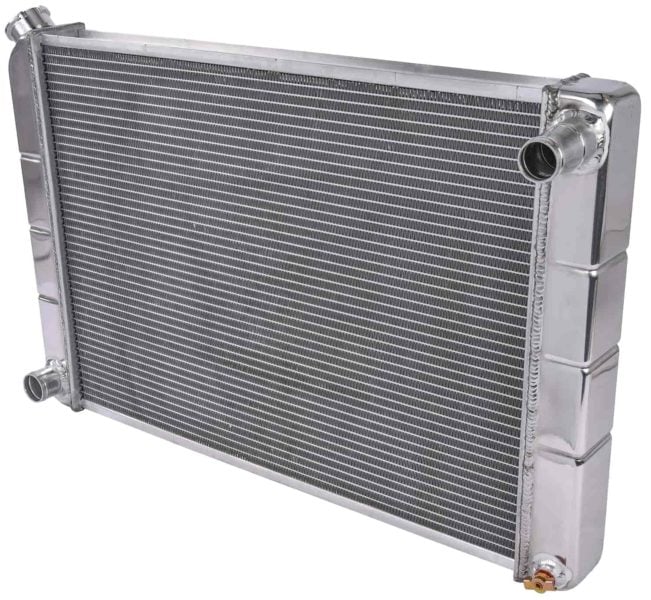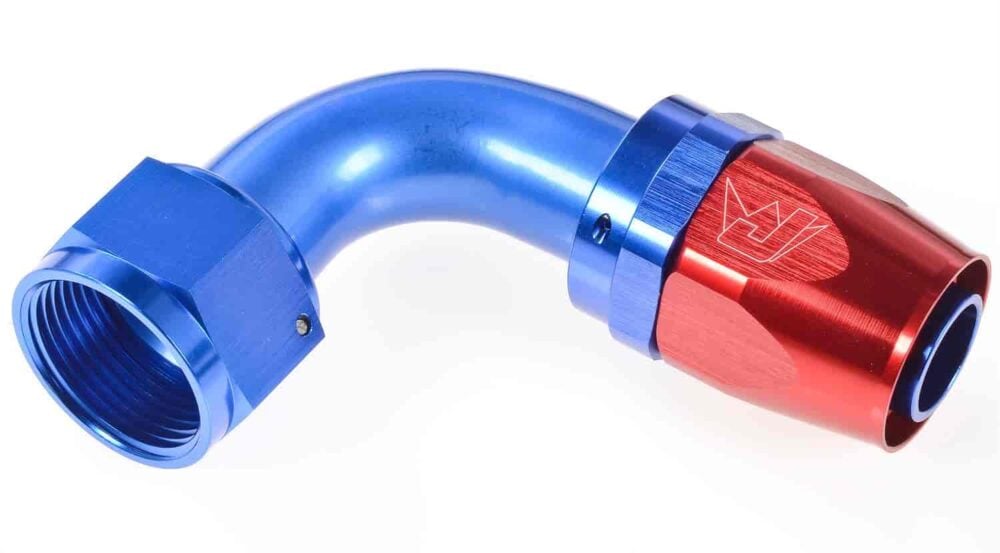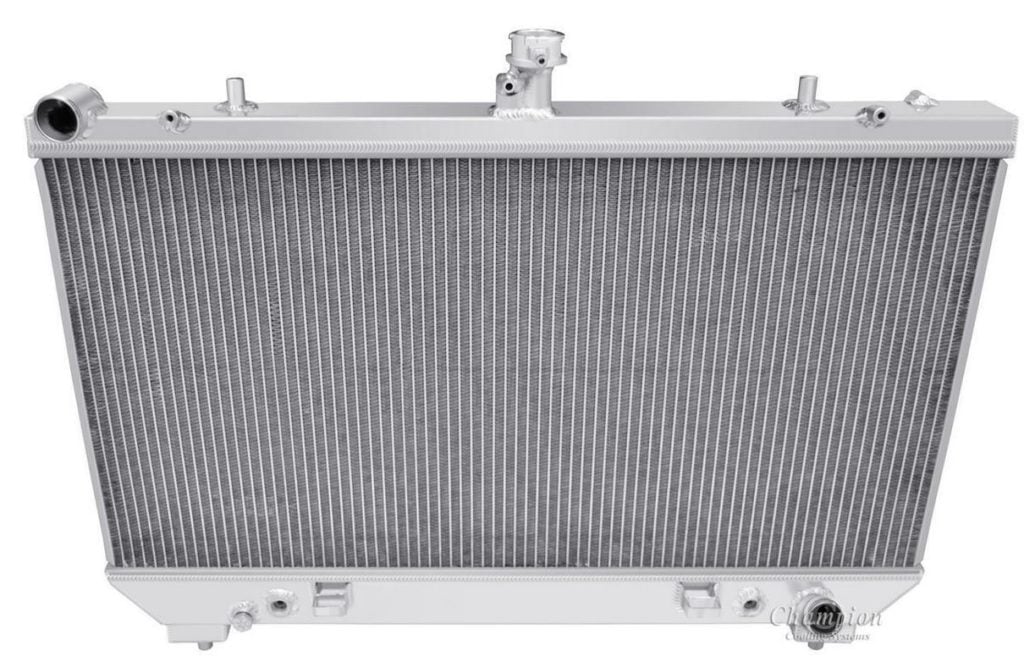
Most modern radiators are made of aluminum instead of brass and copper, which were commonly used just a few decades ago. Aluminum is an impressive material for a radiator for several reasons, which is why so many car owners are changing over to aluminum for their cooling systems.
An aluminum radiator doesn’t just come with benefits, though, and there are some disadvantages for you to consider as well before making an upgrade to your vehicle.
Advantages of Aluminum Radiators
Aluminum is an excellent material for creating radiators because it conducts heat well and is exceptionally strong. These two properties together allow for radiators with incredibly thin tubes and small footprints. An aluminum racing radiator can cool the vehicle it’s used in just as effectively as a much larger copper radiator can, and that helps save you space and weight under the hood of your vehicle.
Durability
Aluminum is more durable than other radiator materials. When a radiator is built from aluminum, it’s less susceptible to damage from corrosion and from warping or cracking. If you plan on pushing your car’s radiator to its limits, it’s best to have a system that’s crafted from as much aluminum as possible.
Better flow
Aluminum is the chosen material for performance radiators because it can be used to create smaller and denser fins and wider pipes, and the system can be maintained at higher pressure levels. By increasing the width of the coolant pipes in a radiator and increasing the coolant pressure in the system, you can cycle coolant around the radiator faster and remove more heat from your vehicle’s engine. This is particularly important in performance situations when your stock radiator can’t keep up.
Reduces instances of failure
Many modern vehicles come equipped with a stock radiator that’s made mostly from aluminum, but many also feature plastic inlet and outlet tubes. These tubes are a serious point of failure in these parts, and they can reduce the lifespan of your radiator as well. When you get a product that’s made entirely from aluminum, it’s less likely to crack or corrode and should last for even longer overall.
Disadvantages of Aluminum Radiators
There are many serious benefits to using an aluminum radiator in your vehicle, but making this switch doesn’t only give you benefits.
Higher maintenance
Aluminum radiators are stronger overall, but they must be maintained more meticulously as well. The old copper and brass radiators hold up better when older coolant is kept in them than modern aluminum radiators do. That’s partly because modern radiators are smaller in size and can’t handle as many imperfections. If you don’t plan on changing the coolant in your vehicle every two years, you might have some issues when you rely on an aluminum radiator.
Cost factor
The best aluminum radiator available today is also expensive. If you opt for this technology enhancement, you’re going to spend more money for the gains. This is a real concern when you’re trying to keep your upgrade costs low. If you want to enhance your vehicle using an aluminum radiator, you should prepare to invest more money into the vehicle than you would with a less premium radiator option.
Different Types of Aluminum Radiators To Consider
Several different types of aluminum radiators come in different sizes and provide different levels of performance benefits. Learn the difference between down flow and cross flow as well as single pass and multi-pass radiators to choose the right products for your vehicle.
Downflow
In a downflow, radiator coolant enters into an inlet at the top of the radiator and flows downward to the outlet where it’s removed. Downflow radiators move more coolant through in less time, and they are typically single-pass systems.
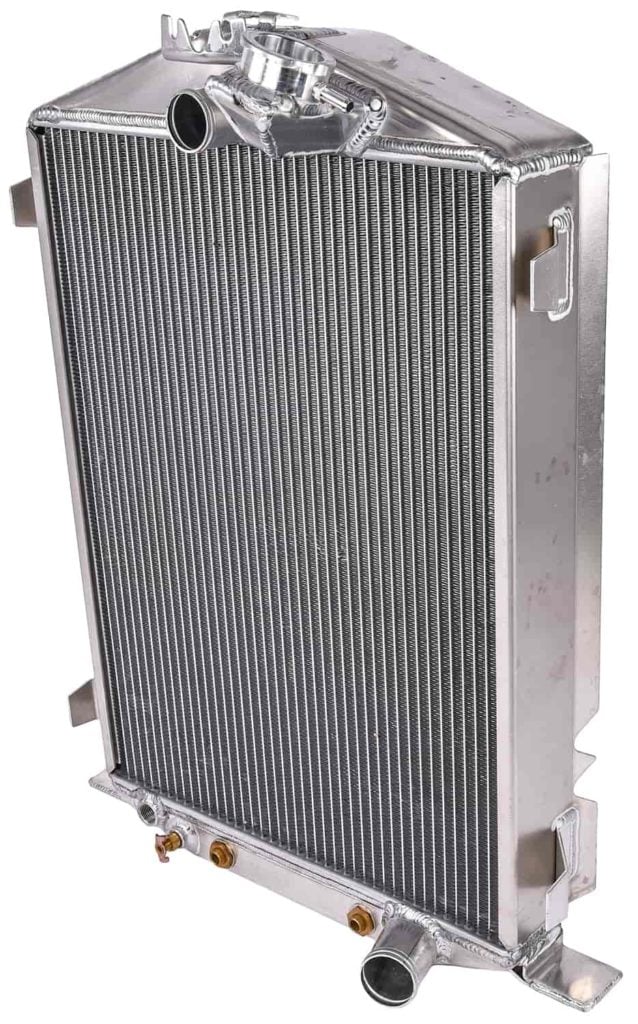
Crossflow
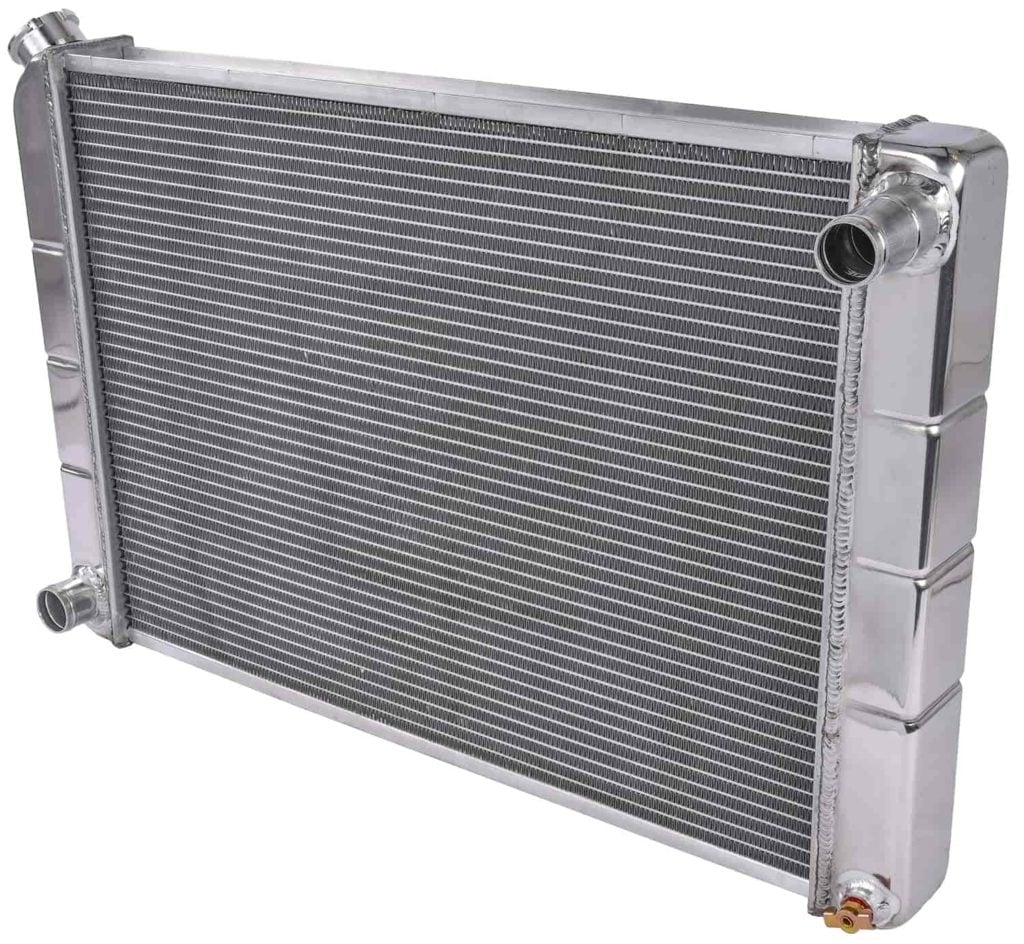
In crossflow radiators, the coolant moves from side to side as it passes through the core. Crossflow radiators enable coolant to travel through the core more slowly, allowing it more time to cool down. A crossflow radiator is the most common option used for multi-pass radiator setups if that’s something that you’re interested in.
Single-Pass
In a single-pass radiator, all the coolant flows from the inlet tube to the outlet tube without changing direction at any time. The coolant only completes a single pass through the core of the radiator, which means it has less time to cool off than it would with a multi-pass radiator design.
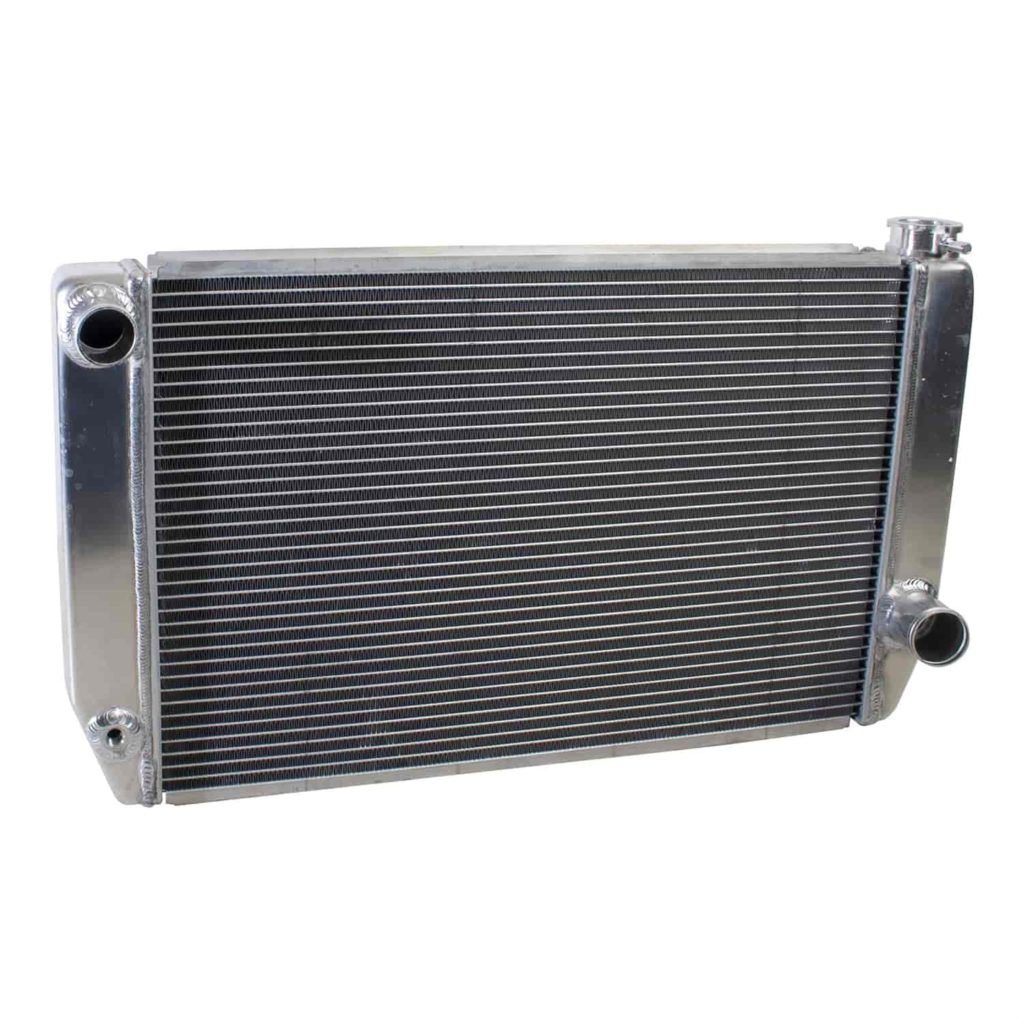
Dual-Pass
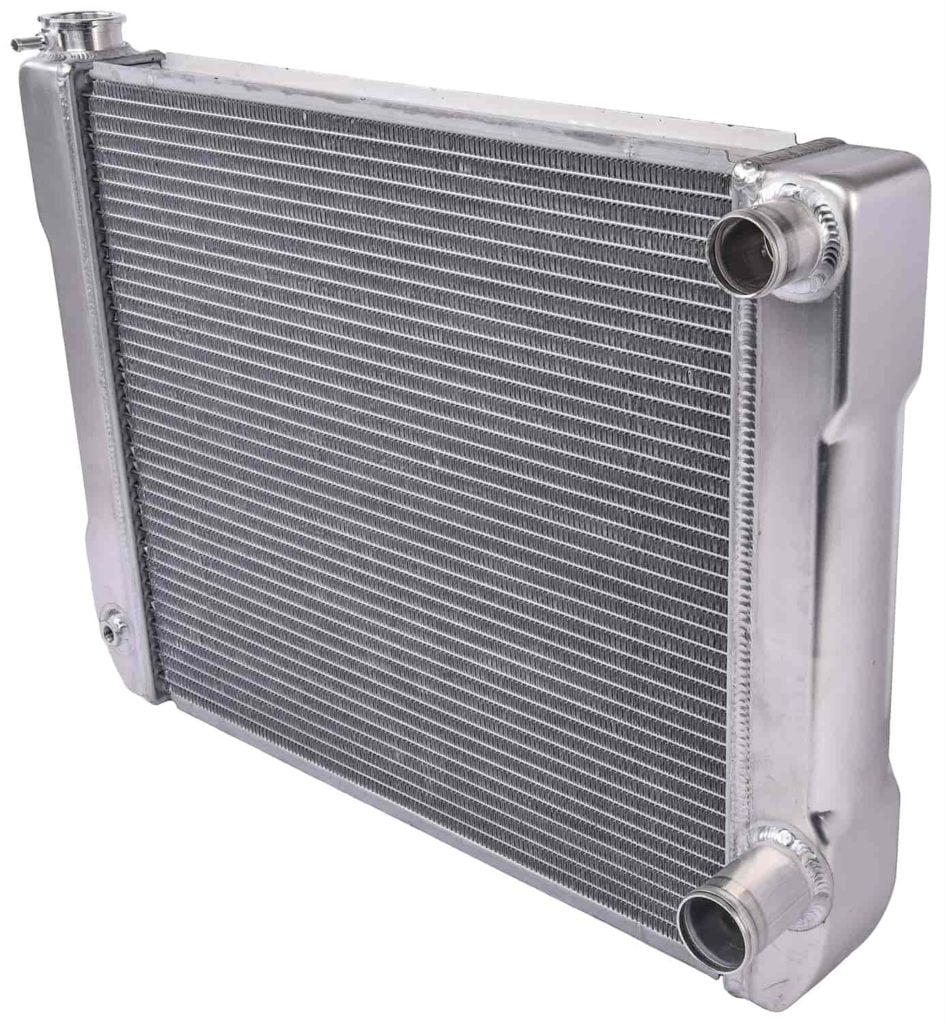
In a dual pass radiator, the coolant flows in from the engine to the inlet pipe and then travels across the radiator, down, and back across the radiator once again. This special type of radiator directs the coolant back to the same inlet pipe location again when it’s finished with its journey. By sending the coolant through the radiator core two times, a dual pass radiator can remove more heat from the coolant than a single pass radiator can.
Triple-Pass
A triple-pass radiator is divided into three separate sections. The coolant pipes route back and forth across the radiator to create three separate passes through the radiator core. By sending coolant through the radiator three times, it is decreased to lower temperatures than a single or dual-pass radiator can manage. Coolant takes longer to flow through a triple-pass system than it does a dual pass or single pass, and often a greater coolant pressure level must be maintained to enable a triple-pass system to function.
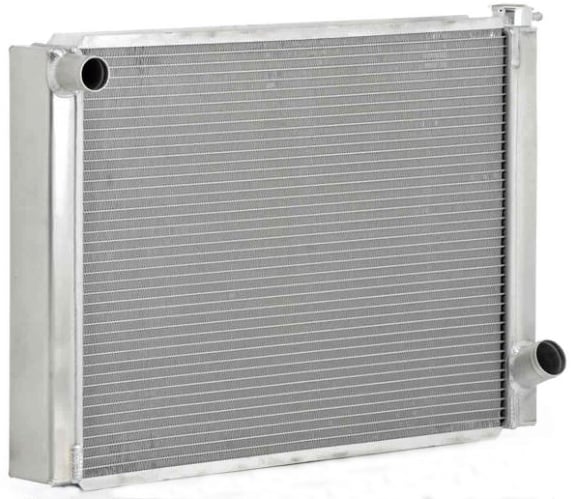
Many significant benefits come from investing in an aluminum radiator in your vehicle, but the investment isn’t always worth the cost. If you’re making performance-enhancing improvements to your vehicle that increase your engine output, you’ll likely want to add an aluminum radiator that can handle the higher amount of heat generated by your engine. If your vehicle is running well and it uses an older copper and brass radiator, you can probably continue to rely on that for as long as you aren’t having any trouble with it.
When searching for the best aluminum radiators for your vehicle, JEGS offers high-quality options built for modern and classic vehicles. Enjoy convenient access to online performance parts shopping and a mail-order catalog for your next upgrade.

